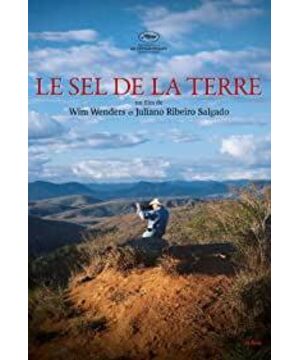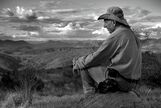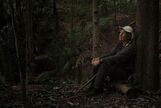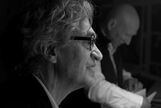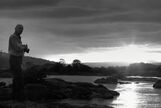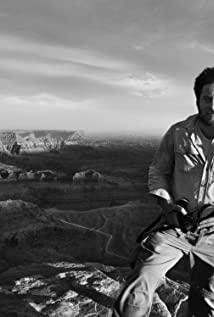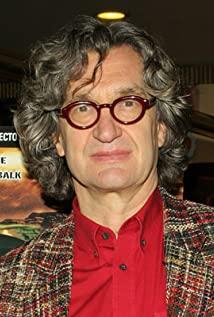Sebastião was born in Brazil in the 1940s. In the 1960s, I moved to Europe with his wife Lilia (haha...). He gave up his high-paying job at the World Bank in the United Kingdom. After everything went to zero, he went to Paris to engage in full-time photography. His footprints began to spread all over the world: Latin America, Africa, the Middle East... A shooting project often took several years, and he was far away from his family. Living and eating with the locals, this time seems to be able to shoot the works closest to the authenticity. The doubts and disgust can not be seen in the eyes of the subjects being photographed, which is the most natural presentation. In the 1980s, he went to Africa. In Ethiopia and Mali, he saw people who were afflicted by famine and drought, sickness and death were equal, dehydrated and withered human body, and life was like withered grass and wood.
If in the 80s, Sebastião saw the weakness of humans, then in the 90s, he saw the evils of humans. In April 1994, the Rwanda massacre. At that time, the media all over the world focused on the first democratic election in South Africa, the indifference of Europe, America and even China, and the delay of the United Nations. No one seemed to care what was happening here. In three months, 100 Thousands of people were slaughtered. Yesterday’s neighbours friends, today I can’t wait to hack you to death with a hoe and a sickle. Here, Sebastião used a camera to record the genocide at close range. In Tanzania and Congo, he followed the fleeing people and saw his father throwing the children’s corpses into the corpses without expression, and seeing people. Shovel countless corpses with a forklift, mixing them with dirt like dirt. In front of the screen, I could not face it for several times. At this time, Sebastião said, “I was with the refugees and miraculously did not contract any disease, but my heart and soul were sick.” This reminded me of the same year. , South African freelance photographer Kevin Carter committed suicide in Johannesburg with a car exhaust pipe introduced into a sealed car, and he was the photographer who photographed the famous vulture and the little girl who was starving to death on the way to the relief station. Winning the Pulitzer Prize for Journalism has also caused a huge controversy: In the face of this situation, should we immediately put down the camera and step forward to help or complete the mission first? The last words he left behind, "I'm sorry everyone, the pain of life far exceeds the level of joy."
Sebastião has gone through the darkness of the world and the cruelty of humans and chose to survive, but he can no longer take portraits. He and his family returned to Brazil and began to take care of their parents’ farms and tried to revitalize the dry land by planting trees. They succeeded, and nature seemed to relieve his pain. He regained his camera, but this time, his subjects became animals and nature. Perhaps it is because he has experienced too many lives and different destinies, and the animals he photographed are so humane. What moved me in particular was a close-up of the foot of an iguana taken in the Galapagos Islands (commonly known as Turtle Island, in Ecuador). He said, "It reminds me of the hands of medieval warriors and their armor. Seeing it is like seeing my cousin. We all evolved from the same cells at first." What a moving passage.
After watching the film, one stone stirred up a thousand waves of emotions, so that it made me sad, doubtful, painful, angry and even more anxious. While admiring Sebastião very much, he also became deeply disgusted with himself, disgusted with his cowardice, cynicism and narrow-mindedness. On the other hand, what about the small African islands I look at? Last year, I also started to take photos of my children’s projects. It was called "Shooting Projects", but in fact, I used iPhone to "sneak pictures" while working. Now think about it, is such a photo meaningful? Is it affectionate? Or is it just to satisfy my shameless voyeuristic vanity without any thinking behind it? Did you touch yourself or hypocritically affect others? Maybe you will answer "random eggs".
This distorted psychological state has been entangled with me until today I saw the "sorrow" of Tchaikovsky being commanded by Japanese female conductor Tomihiro Nishimoto. It turns out that I, like Sebastião, need to find a place of refuge in which I pretend to forgive myself.
View more about The Salt of the Earth reviews


